Matthew Collins
Probabilistically Informed Robot Object Search with Multiple Regions
Apr 05, 2024



Abstract:The increasing use of autonomous robot systems in hazardous environments underscores the need for efficient search and rescue operations. Despite significant advancements, existing literature on object search often falls short in overcoming the difficulty of long planning horizons and dealing with sensor limitations, such as noise. This study introduces a novel approach that formulates the search problem as a belief Markov decision processes with options (BMDP-O) to make Monte Carlo tree search (MCTS) a viable tool for overcoming these challenges in large scale environments. The proposed formulation incorporates sequences of actions (options) to move between regions of interest, enabling the algorithm to efficiently scale to large environments. This approach also enables the use of customizable fields of view, for use with multiple types of sensors. Experimental results demonstrate the superiority of this approach in large environments when compared to the problem without options and alternative tools such as receding horizon planners. Given compute time for the proposed formulation is relatively high, a further approximated "lite" formulation is proposed. The lite formulation finds objects in a comparable number of steps with faster computation.
What do the US West Coast Public Libraries Post on Twitter?
Sep 28, 2018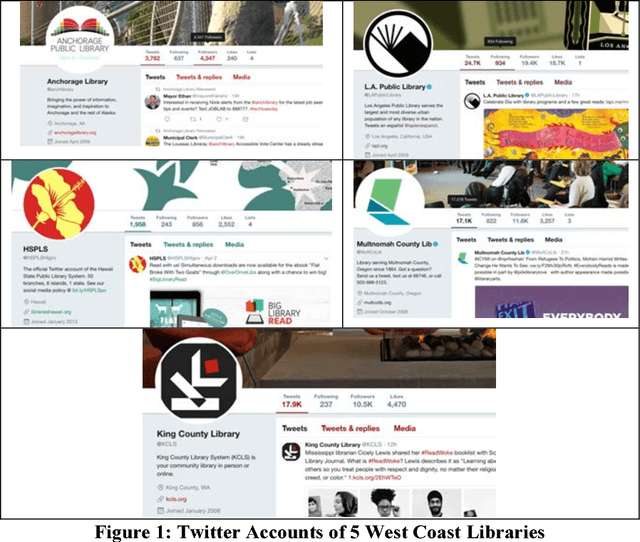
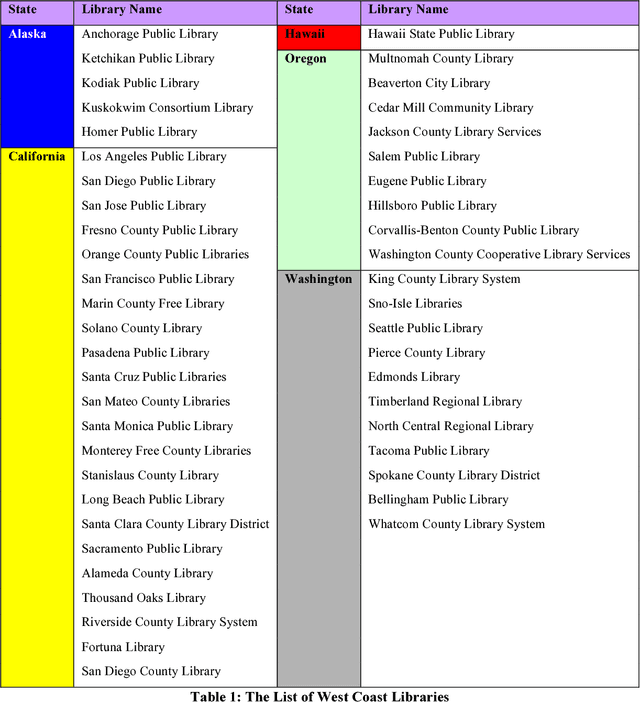

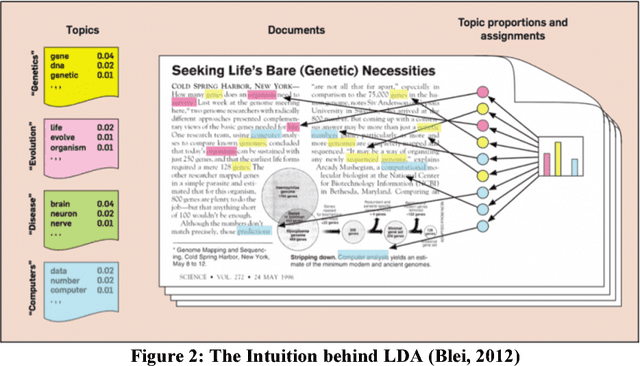
Abstract:Twitter has provided a great opportunity for public libraries to disseminate information for a variety of purposes. Twitter data have been applied in different domains such as health, politics, and history. There are thousands of public libraries in the US, but no study has yet investigated the content of their social media posts like tweets to find their interests. Moreover, traditional content analysis of Twitter content is not an efficient task for exploring thousands of tweets. Therefore, there is a need for automatic methods to overcome the limitations of manual methods. This paper proposes a computational approach to collecting and analyzing using Twitter Application Programming Interfaces (API) and investigates more than 138,000 tweets from 48 US west coast libraries using topic modeling. We found 20 topics and assigned them to five categories including public relations, book, event, training, and social good. Our results show that the US west coast libraries are more interested in using Twitter for public relations and book-related events. This research has both practical and theoretical applications for libraries as well as other organizations to explore social media actives of their customer and themselves.
Social Media Analysis For Organizations: Us Northeastern Public And State Libraries Case Study
Mar 24, 2018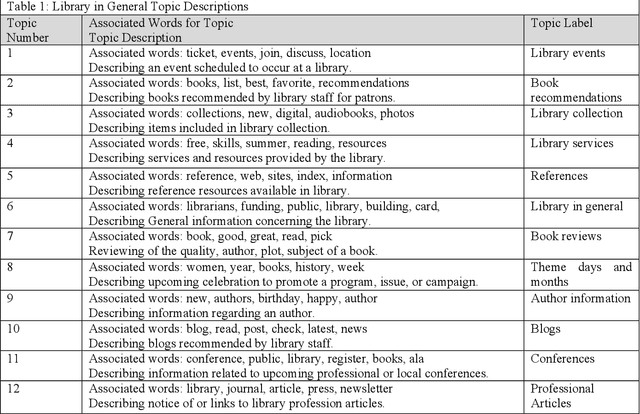
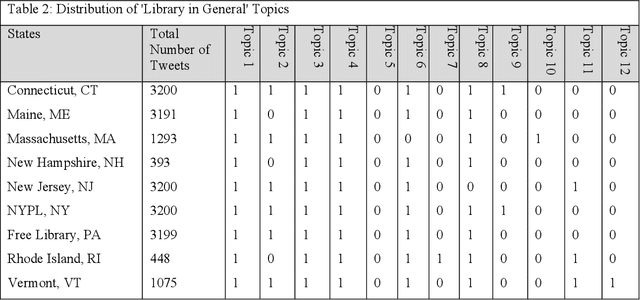
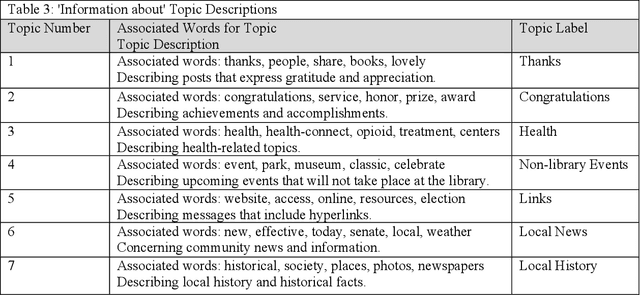
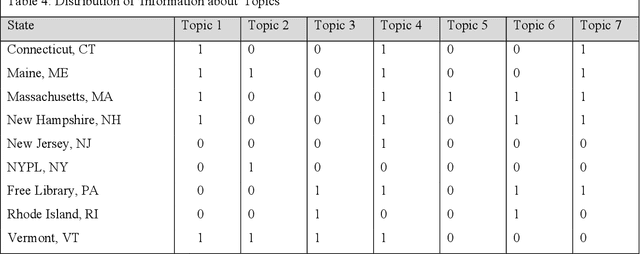
Abstract:Social networking sites such as Twitter have provided a great opportunity for organizations such as public libraries to disseminate information for public relations purposes. However, there is a need to analyze vast amounts of social media data. This study presents a computational approach to explore the content of tweets posted by nine public libraries in the northeastern United States of America. In December 2017, this study extracted more than 19,000 tweets from the Twitter accounts of seven state libraries and two urban public libraries. Computational methods were applied to collect the tweets and discover meaningful themes. This paper shows how the libraries have used Twitter to represent their services and provides a starting point for different organizations to evaluate the themes of their public tweets.
 Add to Chrome
Add to Chrome Add to Firefox
Add to Firefox Add to Edge
Add to Edge